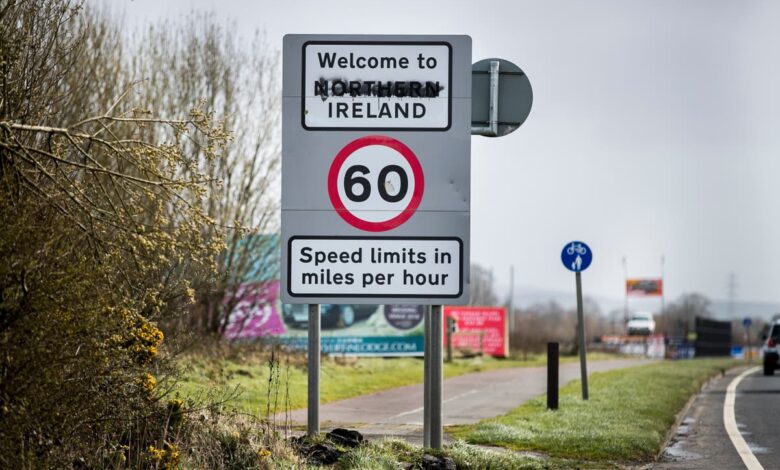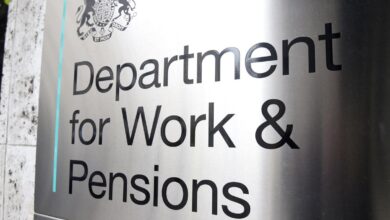Boris Johnson could face new EU legal action this week over threat to tear up Brexit deal

Boris Johnson is facing the prospect of new legal action from the European Union as early as Friday in response to legislation published today to tear up the arrangements for Northern Ireland agreed as part of his Brexit deal.
A bill published today would give ministers sweeping new powers to override elements of the Northern Ireland protocol, as well as taking new powers for the UK over tax and state subsidies in the region without agreement from Brussels.
The long-awaited legislation provoked a furious reaction in both Brussels and Dublin, with Irish premier Micheal Martin saying it was “very regrettable for a country like the UK to renege on an international treaty” which was negotiated and agreed by Mr Johnson in 2019.
And a majority of members of the Northern Ireland Assembly – including all Sinn Fein, SDLP and Alliance members of the legislative assembly (MLAs) – signed a joint letter to the prime minister urging him to abandon his “reckless” rewrite of the protocol, which the government believes will ease the disruption to trade with mainland Britain following Brexit.
Meanwhile, questions were raised over attorney general Suella Braverman’s claim that the move does not breach international law, as it emerged that she is relying on the “doctrine of necessity” which permits states to break agreements in highly limited and extreme circumstances.
Noting that the International Law Commission states that the doctrine can be invoked only when a country’s interests are in “grave and imminent peril” for reasons to which it has not contributed, Cambridge University law professor Mark Elliott said it was “very difficult to argue” that it applied.
“The position, therefore, is if the Northern Ireland Protocol Bill is enacted in its present form and enters into force, it is very likely indeed that it will breach international law by putting the UK in breach of clear obligations set out in the withdrawal agreement and protocol,” he said.
Foreign secretary Liz Truss said the UK’s preference was to achieve change to the protocol through negotiation with the EU, but said this had proved impossible because member states have refused to amend the mandate of chief negotiator Maros Sefcovic.
But Mr Sefcovic said that the UK’s unilateral move was “damaging to mutual trust” and would undermine the Trade and Cooperation Deal governing post-Brexit relations between the UK and EU, as well as calling into question Northern Irish businesses’ access to the EU single market.
Confirming that commissioners will use a meeting on Friday to consider issuing “new” infringement proceedings against the UK, as well as unfreezing existing legal action, Mr Sefcovic said: “Renegotiating of the protocol is unrealistic. No workable alternative solution has been found to this delicate, long-negotiated balance.
“Any renegotiations would simply bring further legal uncertainty for the people and businesses of Northern Ireland. For these reasons, the EU will not renegotiate the protocol.”
Infringement action could lead to financial penalties against the UK, with a full-blown trade war held in reserve until the bill becomes law. But this remains a long way down the track, with stiff resistance in the House of Lords expected to delay its passage through parliament.
Government sources confirmed that the legislation tabled today would not automatically trigger changes to the arrangements in place for trade in Northern Ireland, but would merely grant ministers the power to do so at an unfixed point in the future, with protocol rules remaining in force until they do so.
One senior Eurosceptic Tory told The Independent that the important issue was that Mr Johnson and Ms Truss had demonstrated their readiness to take unilateral action. “They may be hoping to encourage Brussels to change Mr Sefcovic’s mandate,” he said. “I think that’s the game plan, but my suspicion is that the EU will not be ready to do that.”
The bill, finalised in tense negotiations within cabinet last week, would grant ministers the power to create separate green and red channels for British goods destined for Northern Ireland and those set to move into the EU via the Republic, with customs checks only on the latter.
The European Court of Justice’s (ECJ) role in disputes relating to the border would be restricted to rulings on points of EU law referred to it by an arbitration panel.
Ministers in London could unilaterally amend tax and state subsidies in Northern Ireland – for instance by extending the VAT relief on energy-saving products available in the rest of the UK – even though the province remains part of the EU single market.
And the controversial “clause 15” gives Westminster wide-ranging powers to make further changes in future, though Downing Street insisted that the provision was simply a safety net allowing London flexibility in case of changed circumstances.
DUP leader Sir Jeffrey Donaldson said that the unionist party wants to see how the bill fares in parliament before deciding whether to lift its boycott of power-sharing arrangements boycott which has blocked the establishment of a new Northern Ireland executive and assembly following last month’s elections.





